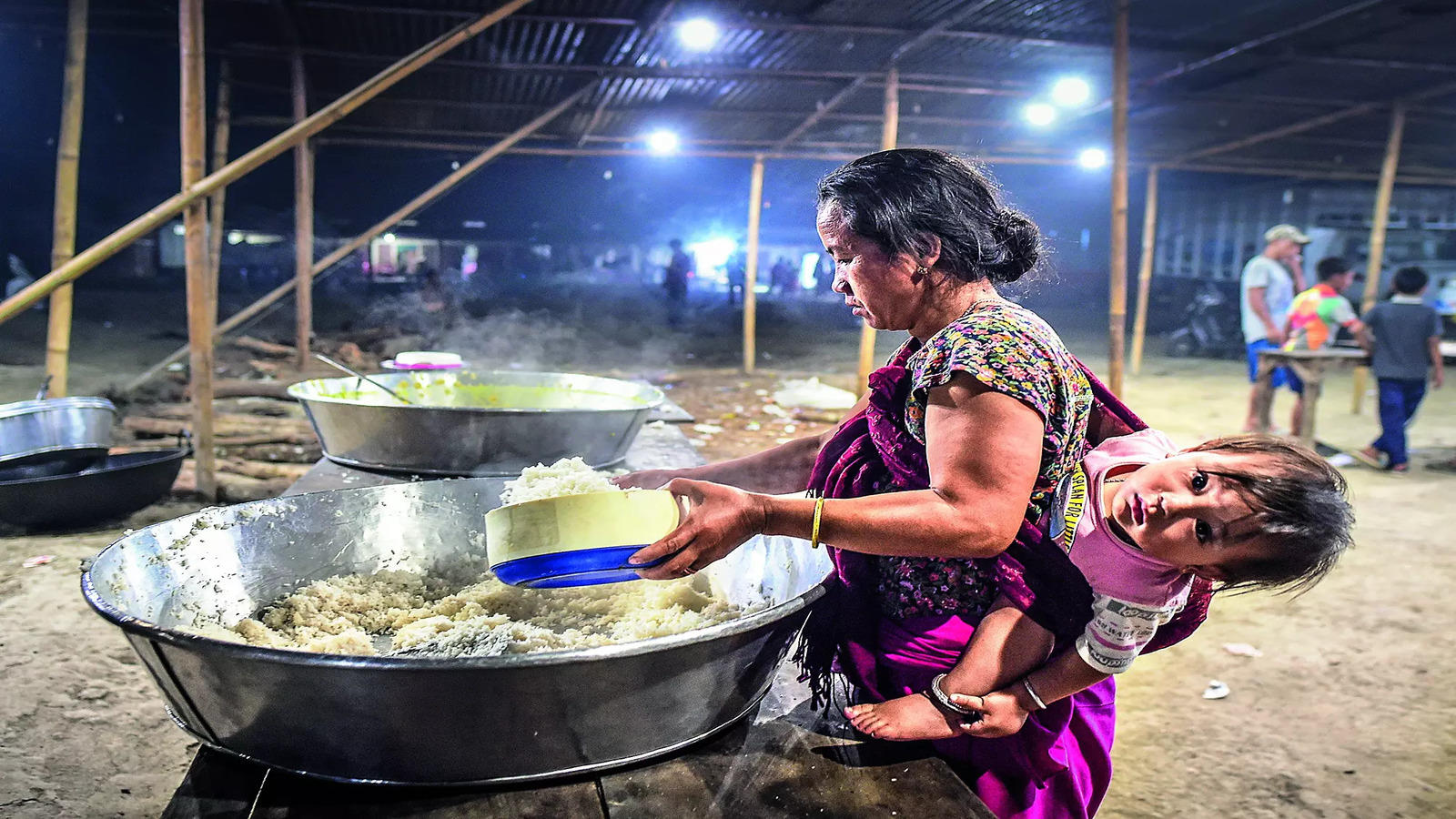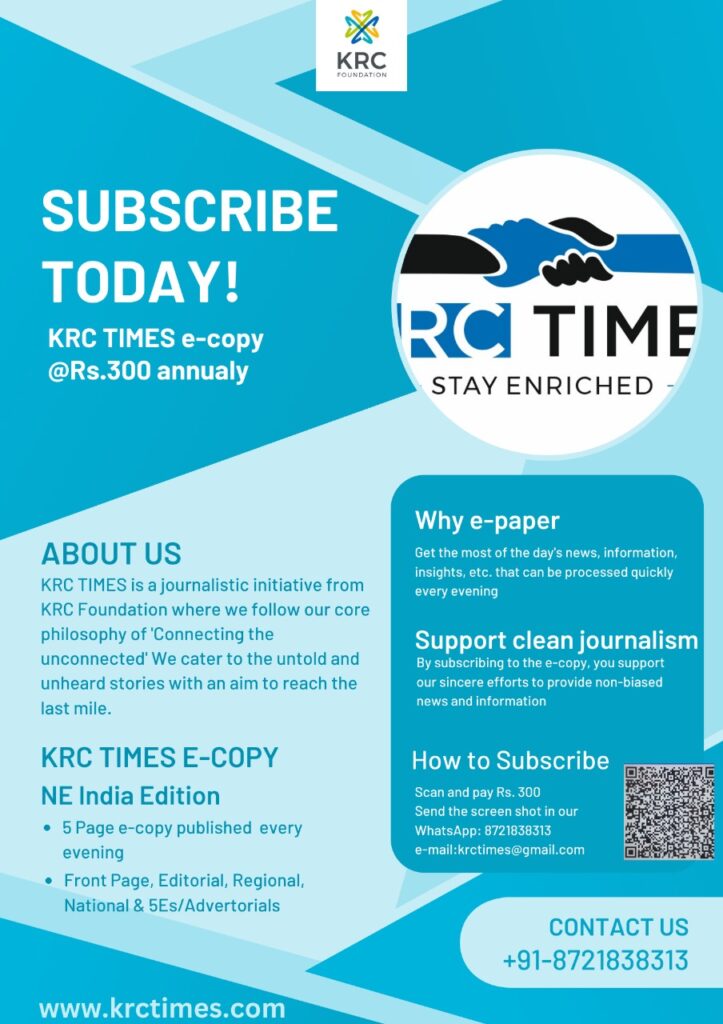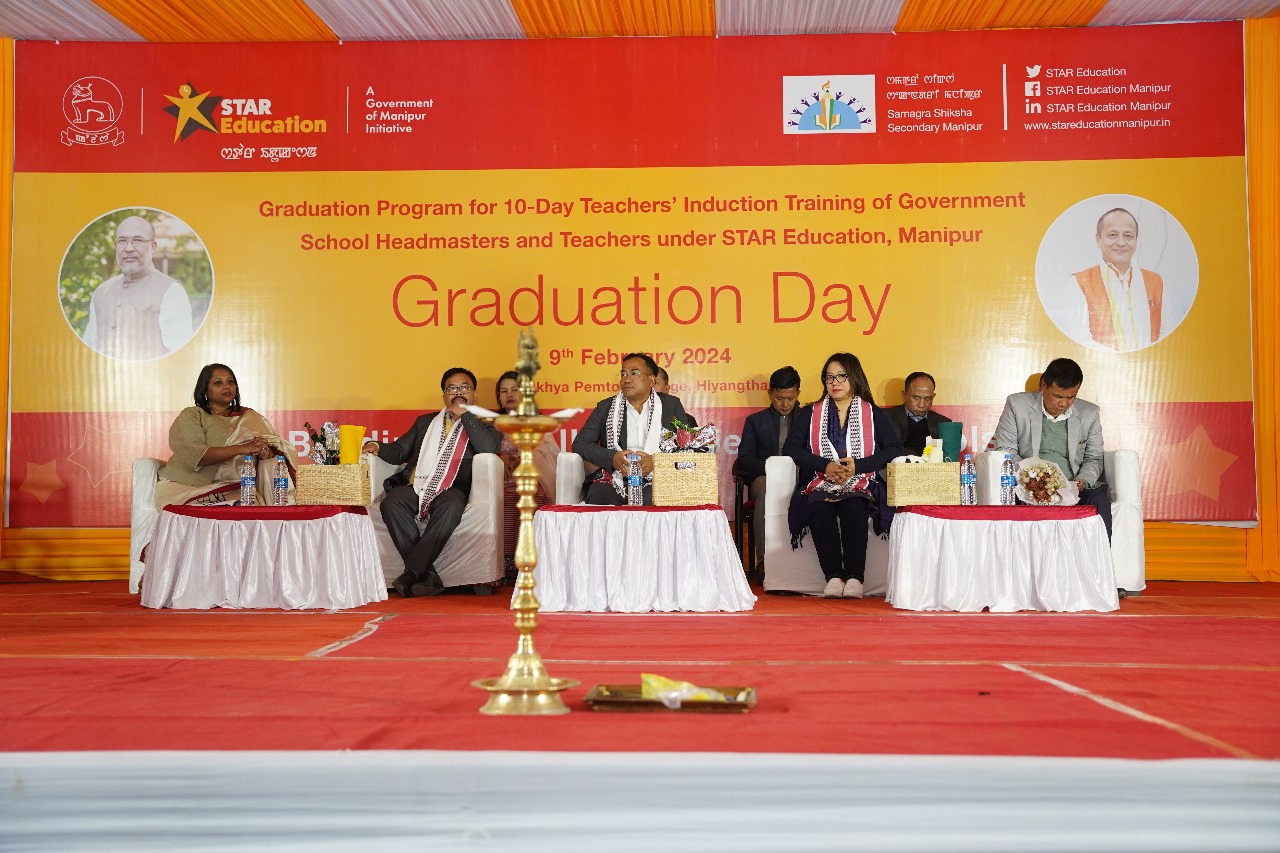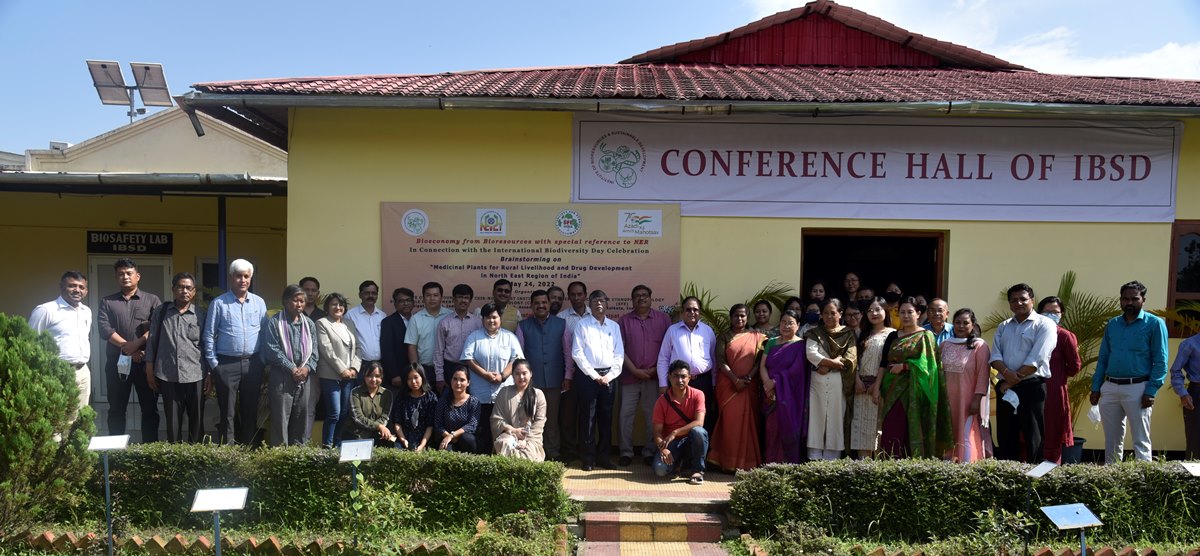The Manipur conflict reached its one-year mark today, but there is still no visible sign of complete normalcy being restored. However, people staying in relief camps managed to stabilize their lives with all-out efforts. Sadly, displaced people living with chronic diseases are compelled to struggle for their lives
 KRC TIMES Manipur Bureau
KRC TIMES Manipur Bureau

The Manipur conflict reached its one-year mark today, but there is still no visible sign of complete normalcy being restored. However, people staying in relief camps managed to stabilize their lives with all-out efforts. Sadly, displaced people living with chronic diseases are compelled to struggle for their lives.
The violence that unfolded in Manipur last year has completely jeopardized life, property, and the economy in the state. Almost every section of society has been directly or indirectly affected by this crisis. Thousands of people were forced to leave their native villages in search of a safer place, and many people lost their lives or went missing. Families of missing victims during the crisis are still eagerly waiting for their loved ones, displaced people yearning to return to their homes, and families of people who have been killed are waiting for justice.
The people of the state have been facing the brunt of violence with self-contemplation about how long they will endure the pain and agonies of the crisis. However, the responsible government is still unable to clear the doubts of the people. Several civil society organizations have also expressed strong condemnation over both the state and central governments for not taking any concrete steps to resolve it.
The state government has taken up some welfare activities for displaced people, such as providing skill training and financial assistance, etc. In addition to this, NGOs and benevolent people have also extended support. However, that temporary relief is not sufficient for them. With the determination to normalize their miserable lives and stand on their own feet, displaced people have started engaging in available odd jobs.
On the other hand, people suffering from chronic diseases are battling for their survival as they can’t afford treatment despite the existence of a health scheme.
Committee members of a relief camp opened at Langol under Imphal West district said that it was a great challenging task to run the relief camp during the early phase of the crisis. Until September last year, they struggled a lot due to fund crunches, though the state government provided financial aid. But now it is better as generous people sometimes come out to provide assistance and state government funds are also released on time.
Stating that there are around 450 people in their relief camp, the committee informed that the state government is providing Rs 115 per head for food. They managed to provide good service to the inmates with the sanctioned amount. However, it is the biggest challenge for them to provide proper healthcare services for those suffering from chronic diseases.
“There is a government health scheme. Despite this, inmates suffering from cancer, diabetes, etc., are facing a lot of challenges in getting proper treatment as they have to spend at least some amount of money from their own pockets. Sometimes inmates need emergency health care like an operation. In such a situation, they do fund drives and seek support from capable people. I feel that the state government needs extra effort to provide good health care services,” said one of the committee members of a relief camp.
He also said that during this 1 year, as many as three women gave birth to babies safely. People staying in the camp also gave them proper care and love. 70 percent of the children are enrolled in nearby government schools, and the rest are in private schools. Most parents want their children to be sent to good schools, but because of their financial condition, they have to send them to government schools.
One of the displaced persons staying in a relief camp opened at Langol under Imphal West, Oinam Ningthem, said that somehow, most of the inmates staying in the relief camp have managed to earn at least some income by doing available jobs. In the early phase of the crisis, they were completely traumatized and didn’t know what to do. However, thinking about their children, they used to support each other and developed the courage to encounter all the suffering.
“I was forced to be displaced from Churachandpur because of the present crisis with my wife and three children. I did business before, but now I have become a laborer, losing all my properties worth lakhs of rupees. Seeing my present income, I don’t think that I can give a bright future to my children,” he added while expressing his desire for the early restoration of peace and normalcy by addressing the conflict by both state and central governments.
A displaced lady from Moreh staying at Ideal Girl College Relief Camp said that as they cannot live just eating food provided by the government, they are no longer able to just stay idle at the relief camp. As such, they start doing micro-businesses by making dishwashers, soap, detergent, incense sticks, etc. They used to sell those things by going door to door and sometimes standing at the roadside under this scorching heat. That amount of income is not sufficient yet they are compelled to do it as they don’t have any other option.
Another lady staying at a relief camp opened at Langol said that she has the skill of tailoring from before. With the sewing machine given by one of the NGOs, along with some of her inmates, they stitch clothes, bags, etc. They even got orders for making such items. Sometimes civil society organizations extend support for selling their stitched products. With this little bit of earnings, they get a sigh of relief.
Advertisement | KRC Times





